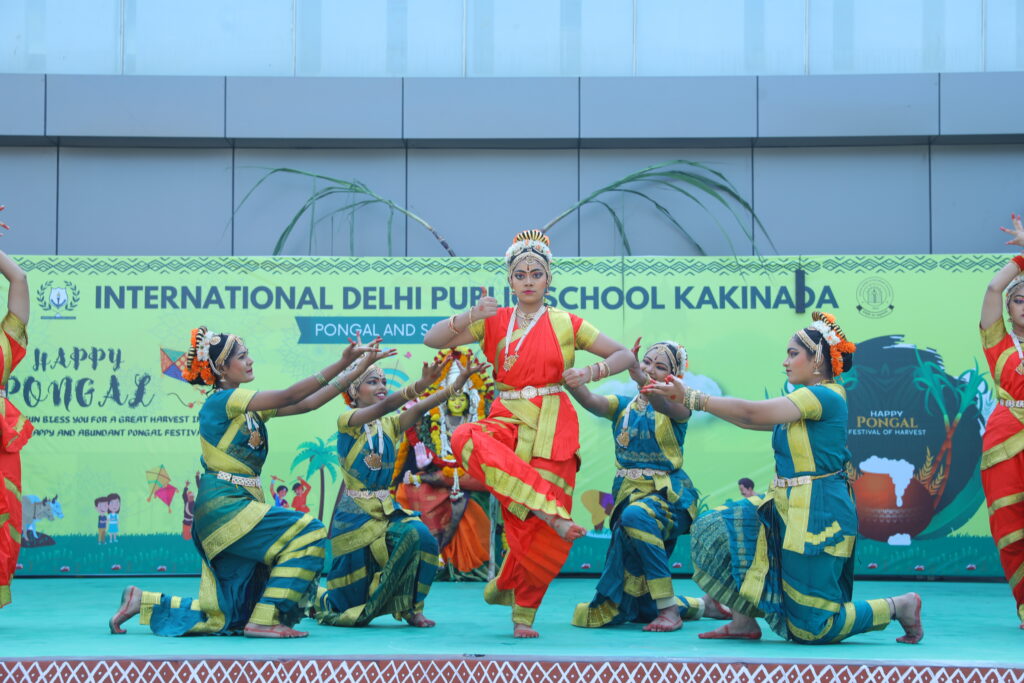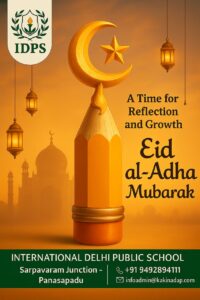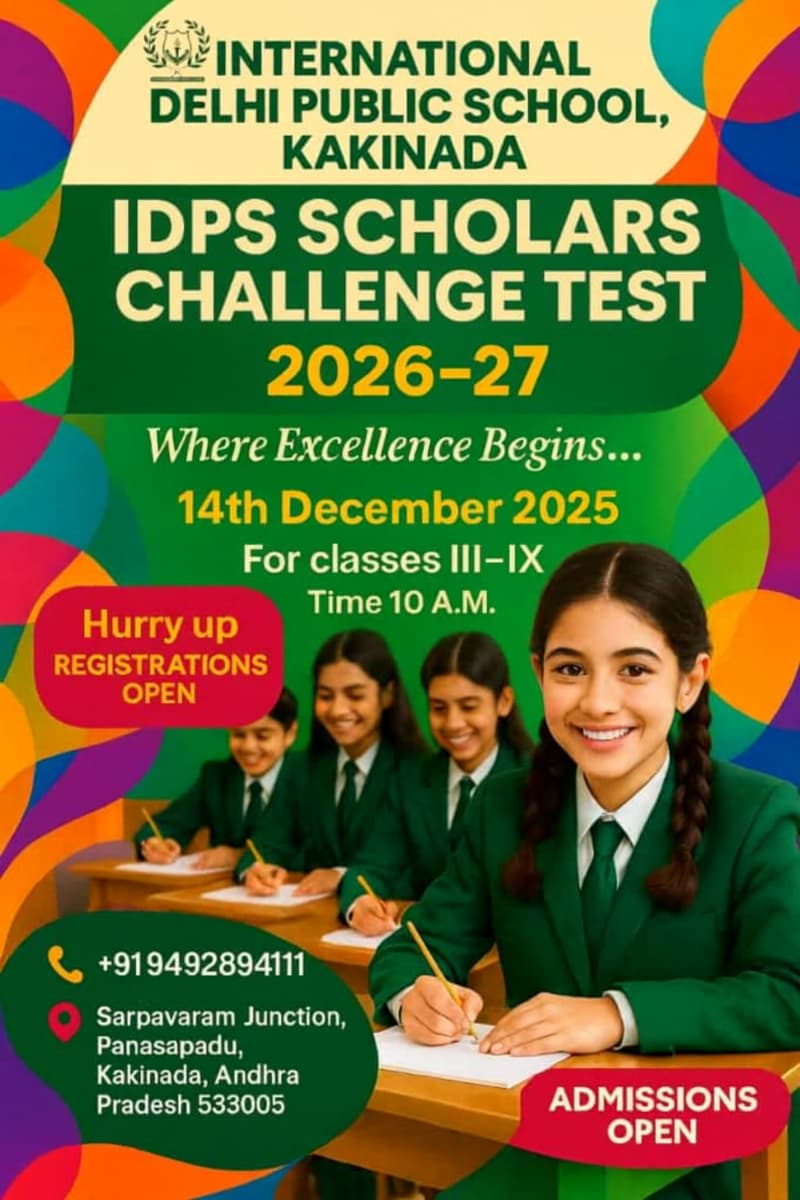At Delhi Public School Kakinada, education goes beyond textbooks and classrooms. The school believes in nurturing well-rounded individuals by embracing cultural diversity and instilling values through immersive experiences. One of the most vibrant expressions of this philosophy is the celebration of cultural festivals. These celebrations not only highlight India’s rich heritage but also promote inclusivity, respect, and unity among students from various backgrounds.
What Are Cultural Festival Celebrations at DPS Kakinada?
Cultural festival celebrations at DPS Kakinada are thoughtfully curated school-wide events that honor India’s diverse traditions, customs, and religious practices. These include national, regional, and global festivals such as:
- Diwali, Holi, Pongal, Eid, Christmas, Raksha Bandhan
- National festivals like Republic Day, Independence Day, and Gandhi Jayanti
- Harvest and regional festivals like Baisakhi, Ugadi, and Onam
- International observances like Children’s Day, Teachers’ Day, and Earth Day
These festivals are celebrated through assemblies, stage performances, exhibitions, classroom activities, food fairs, and traditional games.
Why Are Cultural Festivals Celebrated in School?
DPS Kakinada celebrates cultural festivals to help students understand the spirit of India’s “Unity in Diversity.” Here’s why it’s an integral part of school life:
- To instill values like respect, compassion, and harmony
- To preserve cultural identity and teach the significance of traditions
- To promote inclusivity by recognizing all faiths and regional backgrounds
- To create joyful learning environments through engaging, experiential events
- To foster national pride and civic awareness
How Are Festivals Celebrated at DPS Kakinada?
- School-Wide Assemblies: Thematic assemblies set the tone with traditional songs, prayers, and cultural presentations relevant to the festival.
- Performances and Role-Plays: Students perform dances, skits, and dramatizations that depict the story or origin of the festival.
- Cultural Dress Days: Students and teachers dress in traditional attire, representing various Indian states and cultures.
- Classroom Activities: Art and craft sessions, storytelling, quizzes, and interactive games are organized to make learning fun and relevant.
- Food Festivals: Regional and festival-specific delicacies are brought in or prepared to give students a taste of tradition.
- Exhibitions and Displays: Corridors and classrooms are decorated with student-made posters, rangolis, and festive decorations showcasing cultural symbolism.
- Parent and Community Participation: Sometimes, parents or local artists are invited to perform or speak, enriching the experience with real-world connections.
Key Features of Cultural Celebrations at DPS Kakinada
- Multi-Faith and Multi-Regional Approach: All major religions and regions are represented, emphasizing unity and mutual respect.
- Student-Centric Planning: Students take part in planning and organizing, enhancing ownership and leadership.
- Integration with Curriculum: Festivals are linked to relevant subjects—history, art, literature—to make learning contextual.
- Creative Expression: Opportunities for singing, dancing, poetry recitation, and art allow students to explore their creativity.
- Interactive Learning: Hands-on activities and live performances make festival learning engaging and memorable.
Process Followed for Organizing Festivals
- Calendar Planning: A cultural calendar is created at the beginning of the academic year, identifying key festivals to be celebrated.
- Theme and Concept Finalization: Teachers and student councils brainstorm creative ideas around the theme or cultural significance of each festival.
- Team Formation: Students are grouped into committees—performance, decoration, narration, costume, etc.
- Rehearsals and Preparation: Students prepare under the guidance of teachers and coordinators to ensure cultural accuracy and meaningful content.
- Event Execution: The celebration takes place through assemblies, classroom events, or special cultural days.
- Reflection and Feedback: After each event, feedback is collected to reflect on what students learned and how future events can be enhanced.
Benefits of Celebrating Festivals in School
- Cultural Awareness: Students learn about traditions beyond their own, developing appreciation and empathy for diversity.
- Value Education: Most festivals carry messages of kindness, sacrifice, sharing, and joy—values that become part of the student ethos.
- Joyful Learning: Celebrations bring color, music, and fun into the school routine, boosting student morale and enthusiasm.
- Skill Development: Through organizing and performing, students improve their creativity, communication, leadership, and teamwork.
- Community Building: Festivals unite students, teachers, and parents in celebration, strengthening the sense of school community.
- Civic Responsibility: National festivals and global observances foster awareness of social responsibilities, patriotism, and environmental consciousness.
Conclusion
At Delhi Public School Kakinada, celebrating cultural festivals is not just an extracurricular activity—it’s a meaningful tradition that strengthens identity, inclusivity, and unity. These celebrations allow students to experience the colors, flavors, and values of India’s cultural tapestry while building important life skills. By blending joy with learning and tradition with modern expression, DPS Kakinada ensures that its students grow into culturally aware, socially sensitive, and globally connected citizens.
Every festival at DPS Kakinada is a reminder that in celebrating our differences, we discover our common humanity.
Frequently Asked Questions
DPS Kakinada celebrates a range of festivals, including Pongal, Janmashtami, and other significant cultural events, fostering an environment of inclusivity and respect for traditions.
Celebrations typically involve student participation in traditional dances, music performances, dramatizations, and cultural exhibitions, providing immersive experiences that highlight the essence of each festival.
Engaging in festival celebrations allows students to learn about various cultural practices, promotes unity, and enhances their appreciation for diversity within the school community.
While specific details may vary, DPS Kakinada often encourages parental involvement and community participation to enrich the celebratory experience and strengthen school-community ties.
For glimpses into past festival celebrations, you can visit DPS Kakinada’s official social media pages, such as their Instagram and YouTube channels, which showcase various events and activities.








